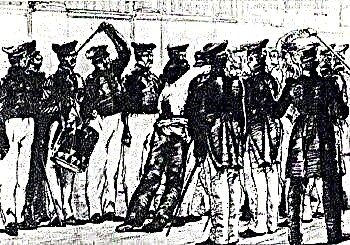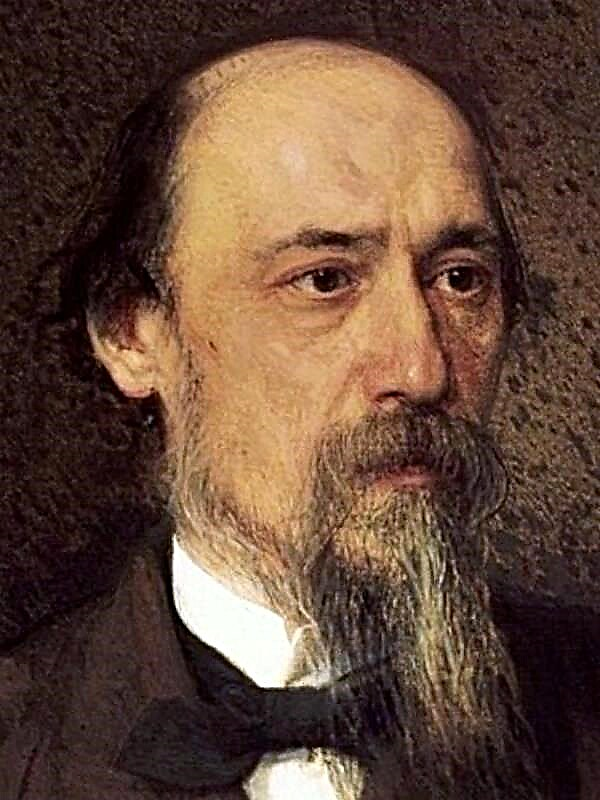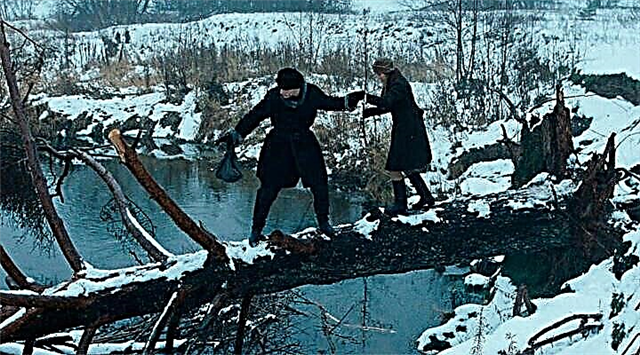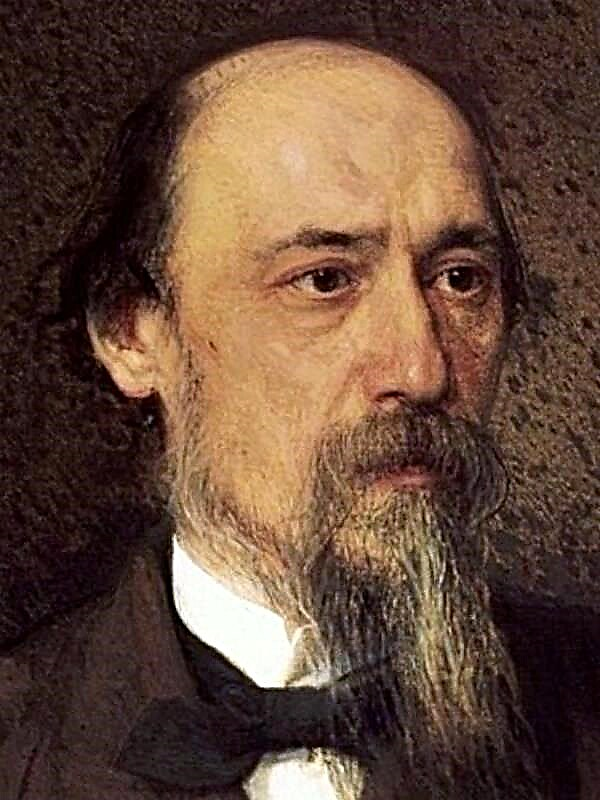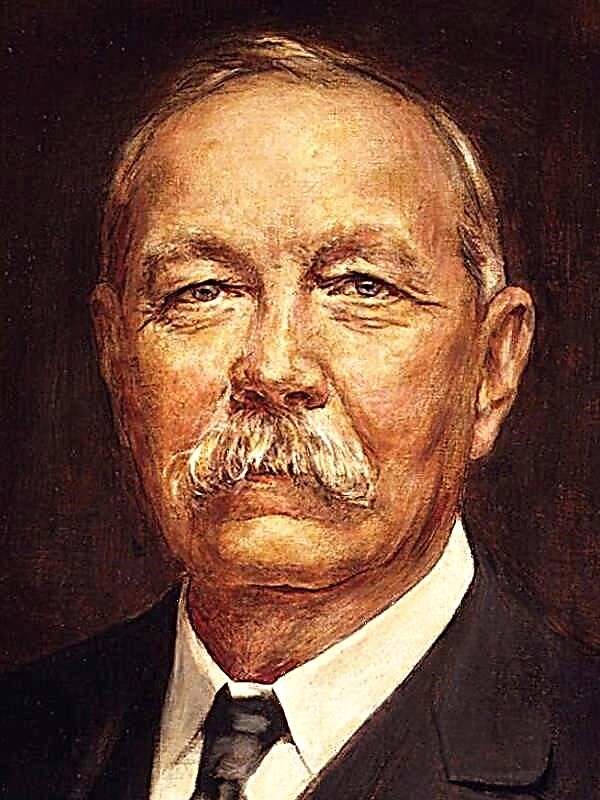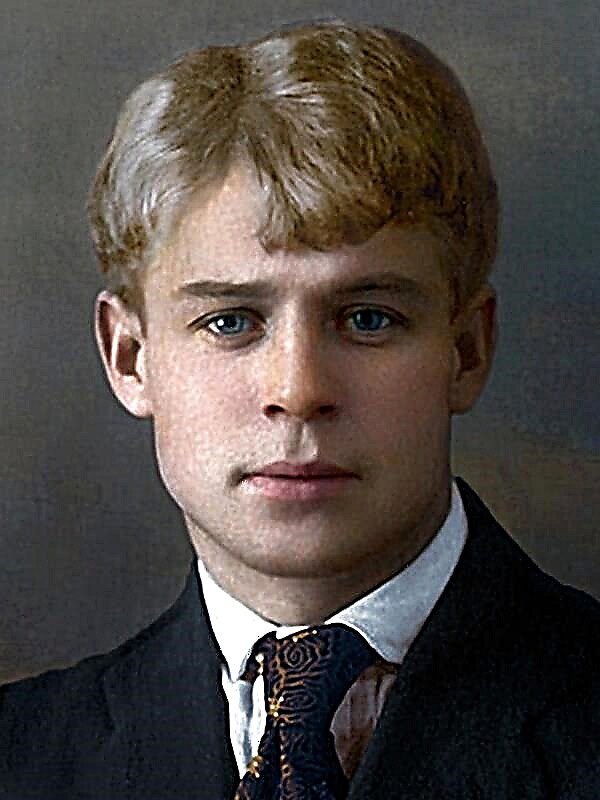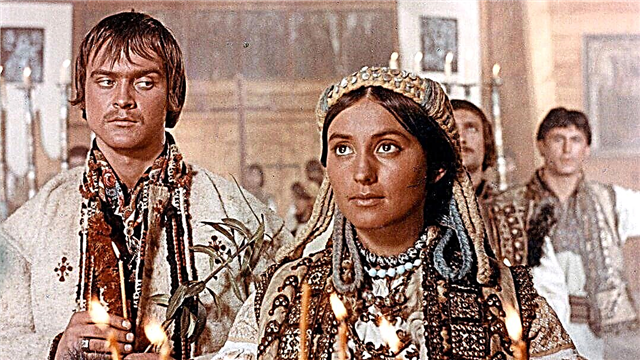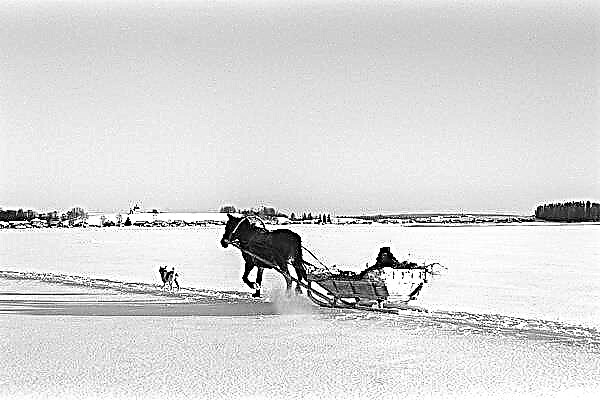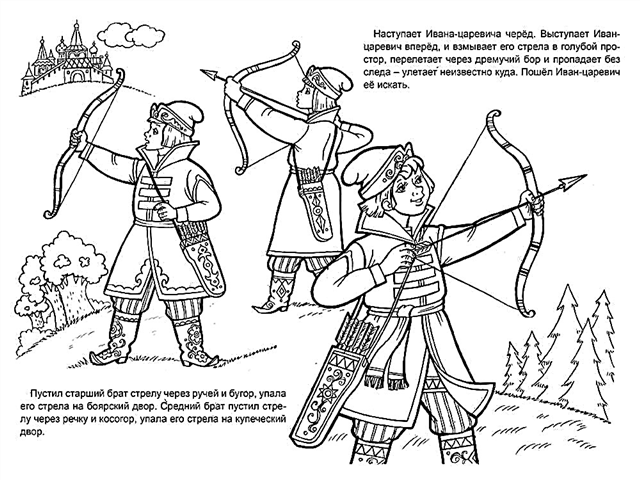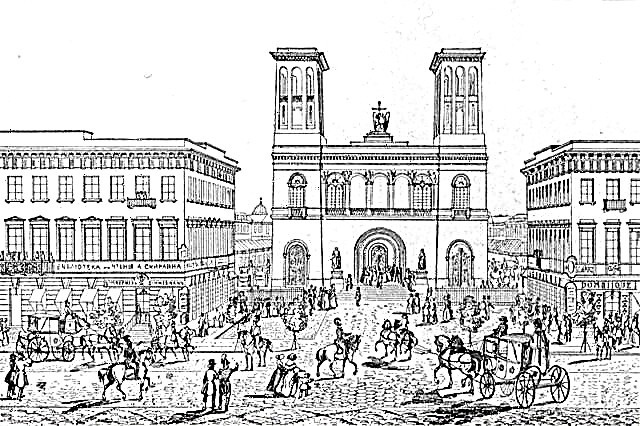In the novelized biography of his relative, Chevalier de Gramont, the author draws modern manners of the French nobility and the English court of the Restoration era.
The reader gets acquainted with the hero during the hostilities in Piedmont, where he, thanks to a lively mind, sense of humor and firmness of spirit, immediately wins universal sympathy. "He was looking for fun and giving it to everyone." A certain Matta, “a model of sincerity and honesty,” becomes his friend, and together they set excellent dinners for which all regiment officers gather. However, the money soon runs out, and friends puzzled how to replenish their funds. Suddenly, Gramon recalls an avid player, the wealthy Count Cameran. Friends invite the count to dinner, and then Gramon sits down to play with him. The count loses a huge amount of debt, but the next day regularly pays, and "lost prosperity" returns to friends. Now, until the very end of the campaign, fortune favors them, and Gramon even does charity work: he donates money to soldiers maimed in battles. Having gained fame on the battlefield, Chevalier de Gramont and Matta go to Turin, overwhelmed by the desire to acquire laurels in the love field. The friends are young, witty, thwarted by money, and therefore they are very kindly received at the court of the Duchess of Savoy. And although Matta the gallantry of the Turin court seems excessive, he relies on a friend in everything. Chevalier chooses a young brunette Mademoiselle de Saint-Germain, and a friend offers to court a charming blonde Marquise de Senant. The marquise's husband is so rude and disgusting that "it was a sin not to deceive him." Having announced their love, both adventurers immediately put on the colors of their ladies: Gramon in green and Matta in blue. Matta, new to the courtship ritual, squeezes the handle of a charming marquise unnecessarily tightly, which causes the anger of a pretty woman. However, Matta does not notice this and in a pleasant company goes to dinner. The next day, at the courtyard, where Matta arrived immediately after the hunt, that is, without the flowers of his lady, an explanation occurs: the lady reproaches him for his insolence - he almost tore her hand off! Gramont echoes Marquise: how dare he appear not in blue! By this time, Chevalier noticed that Gospoyas de Senant "very favorably" refers to himself, and decides not to miss this opportunity, just in case, if he suddenly fails with Saint-Germain.
Marquise de Senant is quite happy with the impatient Matta, and in her heart she has long agreed to fulfill all his wishes, but he does not want to “put the dragon to sleep,” that is, her husband: he is too disgusted with him. Realizing that Matta does not intend to compromise her principles, Madame de Senant ceases to be interested in them. At the same time, Chevalier de Gramont parted with her lover, because she flatly refused to violate the permissible line, preferring to marry first, and only then to enjoy joy with another heart. De Gramont and the Marquise de Senant conspire, with the goal of deceiving both husband and friend, so that they themselves can easily enjoy love. For this, the Chevalier de Gramont, who has long been in friendly relations with the Marquis de Senant, cleverly introduces him to Matt. De Senant invites friends to dinner, but the Chevalier expresses permission to be late, and while Matta, absorbing food in abundance, tries to answer Senant's abstruse questions, Gramont hurries to the Marquise. However, Mademoiselle de Saint-Germain, who wanted to annoy the fan who had turned away from her, also came to the Marquise and, as a result, led her out of the house, so that the disappointed Gramont had no choice but to go to dinner with Senant. However, the Chevalier does not abandon his plan, only now for the implementation of it he plays a whole performance. Having convinced everyone that Senant and Matta had a falling out, he, allegedly wanting to prevent a duel, persuades both friends to spend the day at home (the marquise found this request in his suburban estate), and he rushes to the gentle Madame de Senant, who accepts him so “that he fully understood her gratitude. ”
Returning to France, Chevalier de Gramont brilliantly confirms his reputation: he is agile in the game, active and indefatigable in love, a dangerous rival in heart affairs, inexhaustible to inventions, unperturbed in victories and defeats. Being a clever man, de Gramont gets at the card table to Cardinal Mazarin and quickly notices that His Grace is cheating. Using the "talents released to him by nature", the Chevalier begins not only to defend himself, but also to attack. So in those cases when the cardinal and the Chevalier try to outwit each other, the advantage remains on the side of the Chevalier. De Gramont copes with a variety of errands. Once Marshal Thurenne, defeating the Spaniards and lifting the siege from Arras, sends de Gramont a messenger to the royal court. A dexterous and courageous chevalier bypasses all other couriers who are the first to deliver the good news, and receives a reward: a kiss from the queen. The king is also affectionate with the messenger. And only the cardinal looks sour: his foe, Prince Conde, on whose death in the battle he very much hoped, was alive and well. Leaving the office, a Chevalier in the presence of numerous courtiers makes a caustic joke at Mazarin. Of course, informants report this to the cardinal. But “not the most vengeful of the ministers” does not accept the glove, but, on the contrary, invites the Chevalier to dinner and the game that evening, assuring that “the queen will make bets for them”.
Soon the young Louis is getting married, and everything is changing in the kingdom. "The French idolize their king." The king, while engaging in state affairs, does not forget about love interests. It is enough for His Majesty to cast a glance at the beauty of the court, as he immediately finds a response in her heart, and admirers humbly leave the lucky woman. Chevalier de Gramont, admired by the sovereign's zeal in affairs of government, nevertheless dares to encroach on one of the maids of honor, a certain Mademoiselle Lamotte-Udancourt, who has the good fortune to please the king. The maid of honor, preferring the love of the king, complains to Louis of de Gramont's importunity. Immediately, the Chevalier closed access to the courtyard, and he, realizing that he had nothing to do in France in the near future, was leaving for England. England at this time rejoices on the occasion of the restoration of the monarchy. Charles II, whose young years were in exile, was full of nobility, as were his few adherents from among those who shared his fate with him. Its courtyard, brilliant and refined, amazes even Gramont, accustomed to the splendor of the French court. There is no shortage of charming ladies at the English court, but all of them are far from the true pearls - Mademoiselle Hamilton and Mademoiselle Stewart. Chevalier de Gramont quickly becomes a universal favorite: unlike many French, he does not give up local dishes and easily adopts English manners. Having liked Karl, he is admitted to royal entertainment. Chevalier rarely plays, but in a big way, although, despite the entreaties of friends, he does not try to multiply his fortune by playing. Chevalier does not forget about love affairs, caring for several beauties at once. But once he meets Mademoiselle Hamilton, he immediately forgets his other hobbies. For a while, de Gramont was even at a loss: in the case of Mademoiselle Hamilton, neither ordinary gifts nor his usual methods of winning the hearts of court coquette helped; this girl deserves only sincere and serious affection. There is absolutely everything in it: beauty, mind, manners. Her feelings are distinguished by extraordinary nobility, and the more the Chevalier is convinced of her merits, the more she seeks to please.
Meanwhile, Mademoiselle Stewart's star rises in the court of heaven. She gradually crowds out the king’s capricious and sensual Countess Castlemaine from the king’s heart, who, being absolutely sure that her power over the king is unlimited, cares first and foremost about satisfying her own whims. Lady Castlemein begins to attend the performances of the famous tightrope walker Jacob Hall, whose talent and strength delight the audience, and especially the female part. There is a rumor that the tightrope walker did not deceive the countess's expectations. In the meantime, evil tongues gossip about Castlemaine, the king is increasingly becoming attached to Stuart. Subsequently, Countess Castlemaine married Lord Richmond.
Chevalier de Gramont does not miss a single amusement, where Mademoiselle Hamilton happens. Once, wanting to show off at the royal ball, he orders his valet to deliver him the most fashionable camisole from Paris. The valet, rather battered, returns on the eve of the ball empty-handed and claims that the costume drowned in the quicksand of the English coast. Chevalier comes to the ball in an old camisole and tells the story in justification. The king laughs until you drop. Subsequently, the valet’s deceit is revealed: after drinking heavily, he sold his master's costume for a fabulous price to some English provincial.
Roman Chevalier with Mademoiselle de Gramont develops successfully. This is not to say that he has no rivals, however, knowing the price of their merits and at the same time the mind of Mademoiselle Hamilton, he only cares about how to please his beloved. Friends caution Chevalier: Mademoiselle Hamilton is not one of those who can be seduced, so we will talk about marriage. But the position of the Chevalier, as well as his condition, is very modest. The girl has already rejected many brilliant parties, and her family is very picky. But the Chevalier is confident in himself: he will marry the beloved of his heart, make peace with the king, he will make his wife a state lady, and “with God's help” he will increase his condition. "And I bet everything will be as I said." We must say right away that he was right.

